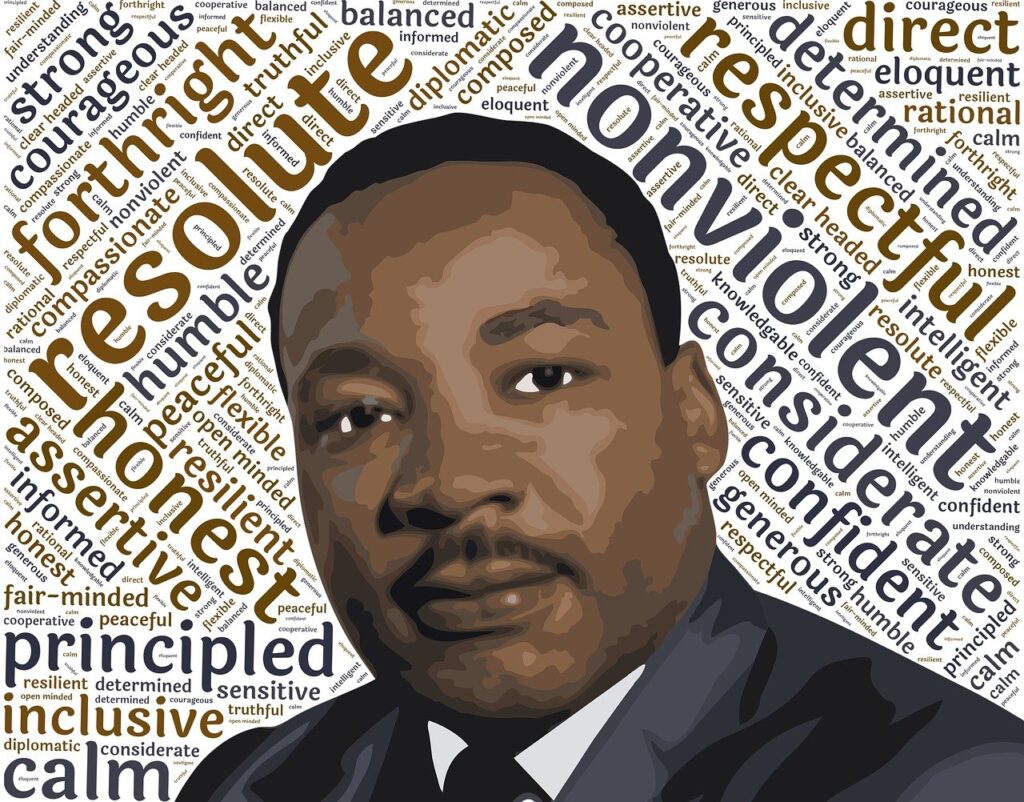Why this survey was relevant?
Martin Luther King Jr. is a revered figure in American history, celebrated for his tireless efforts in advancing civil rights and promoting nonviolent activism during the tumultuous 1960s. However, the journey to establish Martin Luther King Jr. Day as a federal holiday was not without challenges, as reflected in debates on the House and Senate floors over its feasibility and significance. This article delves into the relevance of this debate, considering the evolving attitudes towards civil rights and societal values.
The survey conducted during the discussions on Martin Luther King Jr. Day revealed a divided sentiment among Americans. Forty-seven percent of respondents supported establishing the holiday, while forty-eight percent opposed it, with a small percentage expressing no opinion. This close divide underscored the complexity of the issue, with opponents raising concerns about the potential fiscal impact of adding a tenth federal holiday and supporters emphasizing the moral imperative of honoring Dr. King’s legacy.
The significance of this debate extends beyond administrative considerations, touching on broader societal values and historical narratives. In the 1970s and 1980s, the memory of Martin Luther King Jr. and the civil rights movement was still fresh, yet the holiday faced resistance from those skeptical of its necessity or concerned about the costs associated with federal recognition. The debate captured the lingering tensions and divisions in American society, reflecting the challenges of reconciling historical legacies with contemporary values.
Despite initial opposition, the movement to establish Martin Luther King Jr. Day persisted, buoyed by the unwavering dedication of advocates and activists. Stevie Wonder’s iconic song “Happy Birthday” became a rallying cry for the holiday, symbolizing the collective desire to honor Dr. King’s contributions to the nation. The decisive moment came in 1983 when Martin Luther King Jr. Day was officially recognized as a federal holiday, a testament to the enduring impact of the civil rights movement and the indelible legacy of its leaders.
Today, Martin Luther King Jr. Day stands as a revered national holiday, commemorated every year on the third Monday of January. All 50 states in the nation have embraced this day as a state government holiday, underscoring its significance in American culture. The holiday serves as a time for reflection, remembrance, and renewal of commitment to the principles of equality and justice championed by Dr. King.
In hindsight, the evolution of attitudes towards Martin Luther King Jr. Day reflects broader shifts in societal values and perceptions of civil rights. Over time, Dr. King’s legacy has become increasingly celebrated and revered, transcending racial, cultural, and political divides. What was once a contentious debate over a federal holiday has evolved into a symbol of national unity and a testament to the enduring importance of civil rights in American society.
The statistics from the initial survey, conducted during the debates surrounding Martin Luther King Jr. Day, offer valuable insights into the state of public sentiment during a pivotal moment in American history. The close divide between supporters and opponents of establishing the holiday reflects the deep complexities and nuanced perspectives that underscored the broader societal discussions of that era.
At the time, America was grappling with profound shifts in social consciousness, spurred in large part by the legacy of the civil rights movement led by figures like Martin Luther King Jr. While many recognized Dr. King’s profound impact and viewed a federal holiday in his honor as a fitting tribute, others harbored reservations for various reasons. Some opponents questioned the fiscal implications of adding another federal holiday, expressing concerns about the costs to government and taxpayers. Others may have been influenced by broader political and ideological differences, reflecting the broader divisions within American society.
Today, Martin Luther King Jr. Day serves as a reminder of the ongoing struggle for equality and justice in America. It encourages individuals to reflect on Dr. King’s principles of nonviolence and social change, inspiring renewed efforts towards building a more inclusive and equitable society. As we commemorate this holiday each year, we honor the memory of Martin Luther King Jr. and reaffirm our commitment to his vision of a world where all individuals are treated with dignity and respect.


